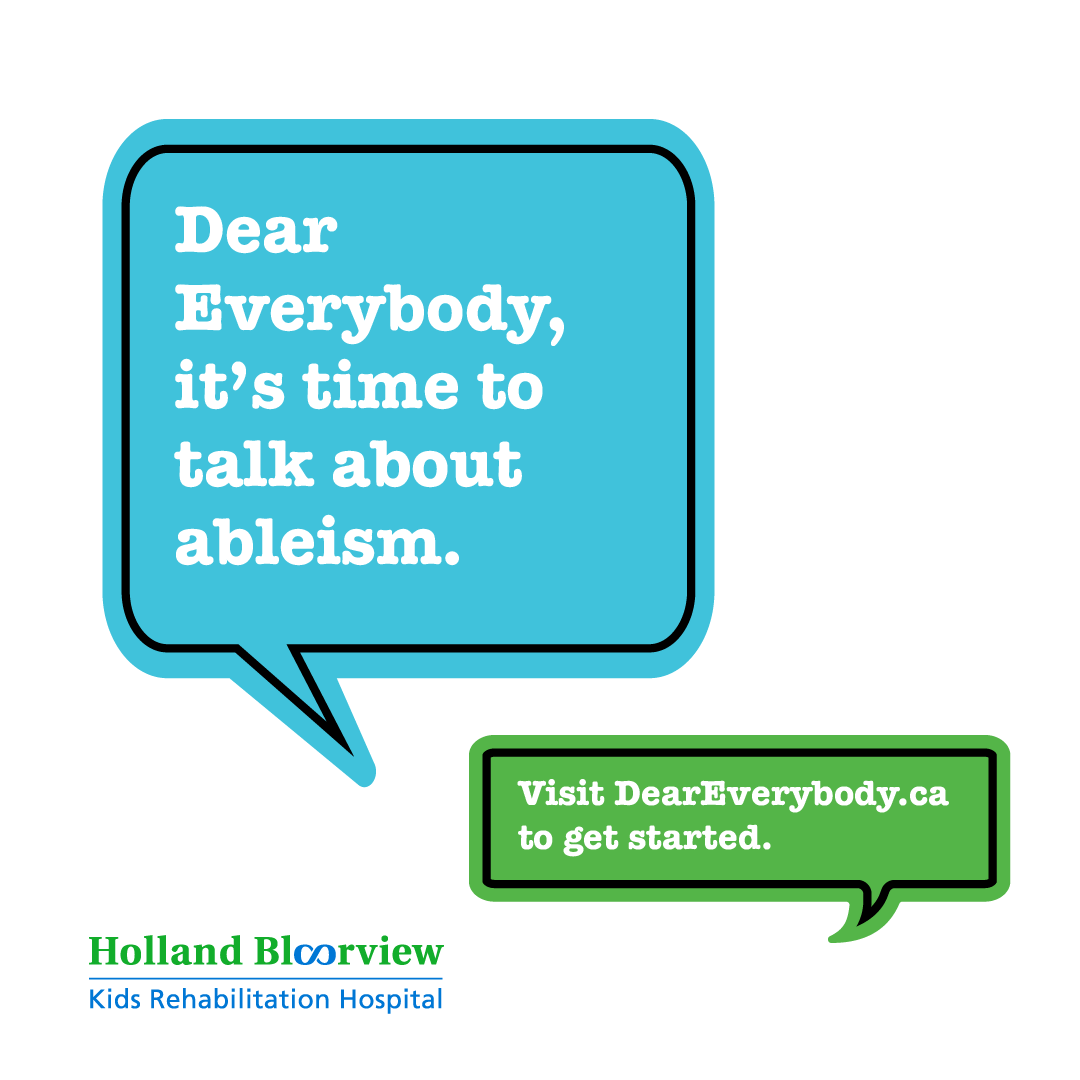For adults who are allies
Being friends with kids with disabilities – how parents can help
DOWNLOAD THIS PDFWalking with a friend in the dark is better than walking alone in the light.”
Kids with disabilities want to make close friends just like any other kids. But for them it can be challenging.
Sometimes they are excluded, left out or ignored. They have lower participation rates in summer camps, volunteer work, recreational activities, and part-time or summer jobs – important experiences for many young people to develop life skills and have a full life.
In fact, 53 per cent of kids who have disabilities have zero or only one close friend.
So we asked parents: “What advice do you have for parents when they’re talking to their kids about being friends with kids with disabilities?”
Here’s what they said.
“Sometimes the biggest barriers are not actually the kids, but the parents. Sometimes parents are not sure how their kids should interact with our kids. Talk to the parents just like we want your kids to talk to our kids. You don’t have to put the disability first.
Have your kids treat kids with disabilities just like they would treat any other kid, come up, say hello, interact, play…the kids they are interacting with may play differently, talk differently, and act a little differently, but they’re still kids.”
You may find there are not many differences between you at all. In fact the only difference may be how a child speaks or walks, but you will likely find you have a lot in common, especially if they’re the same age. You may need to be a little patient, they may move a little slower, you may have to listen a little more carefully because their voice is a bit different, but in the end you’re still going to have a great interaction.”
“Teach your children subtly that disabilities are not contagious. This is something that just about every child with a disability has had to face and it’s heartbreaking. Just a bit of education around this will set your child’s understanding miles ahead of their peers.
I’ve watched as children covered their mouths and noses as my daughter passed them in the halls at school. My daughter’s disability is the result of a genetic condition, she is not sick and one doesn’t ‘catch’ a disability. Further, ask your child to imagine how this kind of thinking and acting may hurt the child with the disability.
Encourage children to include kids with disabilities in their activities. Please invite children with disabilities to your child’s birthday party. This is a gift for everyone involved. Whether it’s games in the schoolyard, working groups in the classroom, or online buddies, the inclusion of kids with disabilities has no down side.”
“Treat the person with a disability no different than anyone else. Kids with disabilities enjoy TV shows, movies, or sporting events and can share their thoughts about these topics. It’s important to be inclusive, remember to invite a person with a disability to birthday parties like the other kids in the class as I remember this was a highlight for Amanda in elementary school.
It’s important to reach out to a person with a disability as you may be surprised by what you learn about yourself. And understand that a person with a disability may have social or communication challenges and may need a little extra time to respond to a question. They’re not ignoring you. If there’s something you as a parent are unsure about the child with a disability try to approach the parents to ask them. Often they are happy to share their insight.”
